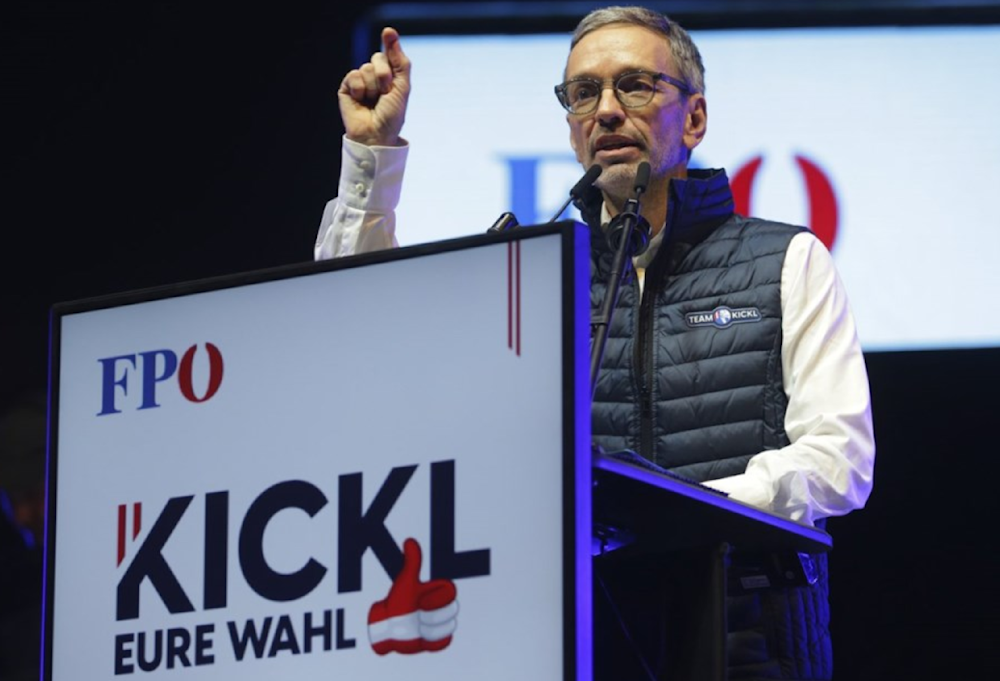Austria far-right set for historic win in vote: projections
The far-right Freedom Party (FPOe) received 29.1% of the vote, compared to 26.2% for the conservative People's Party (OeVP).
-

Head of the Freedom Party (FPOE) Herbert Kickl gestures during his speech at a final election campaign event at St. Stephen's Square in Vienna, Austria on September 27, 2024. (AP)
Austria's far-right outperformed the ruling conservatives in Sunday's general election, paving the way for a historic victory, according to forecasts given by public broadcaster ORF.
The Freedom Party (FPOe) has served in administration multiple times but has never won a national election. According to estimations based on postal voting and vote tallies from closed stations earlier Sunday, the FPOe received 29.1% of the vote, compared to 26.2% for the conservative People's Party (OeVP).
Like other far-right groups across Europe, the party led by Herbert Kickl has risen in popularity due to voter discontent over migration, inflation, and Covid restrictions.
Chancellor Karl Nehammer, who has recently closed the gap with the FPOe in public polls, has vowed "stability instead of chaos."
The FPOe, a long-standing political movement in Austria, formed its first administration with the conservatives in 2000, sparking major protests and fines from Brussels.
Since then, far-right parties have grown in popularity across Europe, with departing governments mostly on the defensive following a string of crises such as the COVID-19 epidemic and the war in Ukraine.
Kickl often criticizes EU sanctions against Russia, promotes the far-right idea of "remigration," which advocates for expelling persons of non-European ethnic backgrounds who are seen to have failed to assimilate, and rails against the outgoing administration.
Meanwhile, the conservative OeVP's popularity has fallen from over 37% in the previous national election in 2019.
According to predictions, their junior coalition partner, the Greens, had an 8.7 percent share, down from their performance in 2019.
However, many believe that even if the FPOe wins the most seats, coalition partners will be required to rule.
Nehammer has maintained his unwillingness to work for Kickl, who refers to himself as the next "Volkskanzler," or people's chancellor.
An unusual three-party alliance led by the OeVP, the Social Democrats, who are expected to receive slightly more than 20% of the vote, and a third party, most likely the liberal NEOS, might derail a Kickl chancellorship.
Both previous OeVP-FPOe administrations were short-lived.
The last one, led by charismatic then-OeVP leader Sebastian Kurz, fell apart in 2019 due to a major FPOe corruption scandal after just a year and a half in office.

 3 Min Read
3 Min Read








